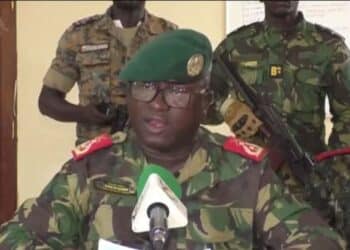Iranian President Masoud Pezeshkian announced the “end of the 12-day war” imposed by Israel, in a message to the nation carried by the official IRNA news agency on Tuesday.
“Today, after the heroic resistance of our great nation, whose determination makes history, we are witnessing the establishment of a truce and the ending of this 12-day war imposed by the adventurism and provocation” of Israel, Pezeshkian said.
Iran-Israel ceasefire takes hold as Trump applies pressure
A shaky ceasefire began to take hold between Israel and Iran on Tuesday under pressure from U.S. President Donald Trump, raising hopes for an end to the biggest ever military confrontation between the Middle East arch-foes.
Both Iran and Israel sent signals that the 12-day air war had concluded, at least for now, after Trump scolded them for violating a ceasefire he announced at 0500 GMT.
Israel’s military lifted restrictions on activity across the country at 8 p.m. local time (1700 GMT), and officials said Ben Gurion Airport, the country’s main airport near Tel Aviv, had reopened. Iran’s airspace likewise will be reopened, state-affiliated Nournews reported.
Iranian President Masoud Pezeshkian said his country had successfully ended the war in what he called a “great victory,” according to Iranian media. Pezeshkian also told Saudi Crown Prince Mohammed bin Salman that Tehran was ready to resolve differences with the United States, according to official news agency IRNA.
Israel’s Prime Minister Benjamin Netanyahu also claimed a historic win.
The developments came after what appeared to be a shaky start to the truce, seen as a critical step to de-escalating the worst fighting between Iran and Israel in decades.
Both Israel and Iran took hours to acknowledge they had accepted the ceasefire and accused each other of violating it, underscoring the fragility of the truce between the two bitter foes and the challenge of achieving lasting peace between them.
Trump scolded both sides but aimed especially stinging criticism at Israel, telling the close U.S. ally to “calm down now.” He later said Israel called off further attacks at his command.
Israel’s defense minister, Israel Katz, said he told his U.S. counterpart, Pete Hegseth, that his country would respect the ceasefire unless Iran violated it. Pezeshkian likewise said Iran would honor the ceasefire as long as Israel did, according to Iranian media.
Whether the Israel-Iran truce can hold is a major question given the deep mistrust between the two nations. But Trump’s ability to broker a ceasefire showed Washington retains some leverage in the volatile region.
Israeli armed forces chief of staff Eyal Zamir said a “significant chapter” of the conflict had concluded but the campaign against Iran was not over. He said the military would refocus on its war against Iran-backed Hamas militants in Gaza.
Iran’s military command also warned Israel and the United States to learn from the “crushing blows” it delivered during the conflict.
Iranian authorities said 610 people were killed in their country by Israeli strikes and 4,746 injured. Iran’s retaliatory bombardment killed 28 people in Israel, the first time its air defenses were penetrated by large numbers of Iranian missiles.
Oil prices plunged and stock markets rallied worldwide in a sign of confidence inspired by the ceasefire, which allayed fears of disruption to critical oil supplies from the Gulf.









